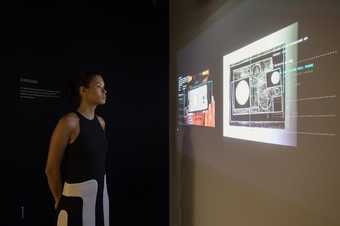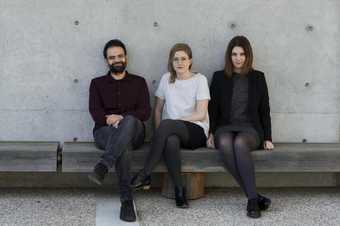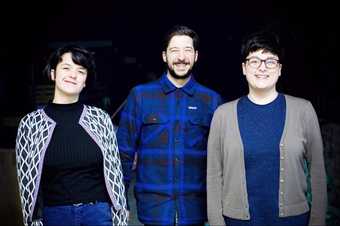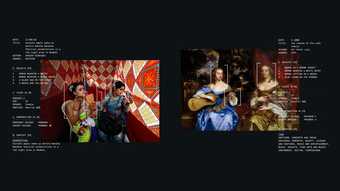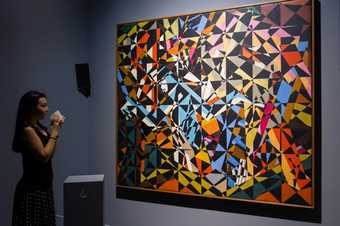1. Information for Entrants
2016 IK Prize Brief
Entrants will demonstrate originality and ingenuity in the application of artificial intelligence to the task of engaging the public with art on display at Tate Britain and on the Tate website.
IK Prize Objectives
The winning project will:
- Engage diverse national and international audiences with art on display at Tate Britain and/or British art on the Tate website
- Have an online and/or mobile manifestation (with a potential physical manifestation or mode of use at Tate Britain or another location)*
- Offer a completely new and exciting way for the public to engage with art
- Use a form of artificial intelligence** innovatively and appropriately in relation to art
Virtual vs. Physical delivery space
*The winning project can take place on any digital ‘platform’, whether online, on a mobile device or as part of a technological installation. In order to fulfil the core objectives, the project must have an integral online manifestation accessible to diverse international audiences.
Please note: Entrants should be aware that a permanent space or any other physical infrastructure requirements cannot be guaranteed at Tate Britain, therefore proposals should not be dependent on a physical space at the gallery. However, proposals featuring the public use of digital hardware in the galleries, or non-invasive/temporary installation of digital hardware more generally, are potentially welcomed. Projects that propose site-specific manifestations in other locations are potentially also welcomed but entrants are advised to be clear about how this could be achieved.
**Artificial Intelligence (AI) is the intelligence exhibited by machines or software. It is also the name of the academic field of study which researches how to create computers and computer software that are capable of intelligent behaviour, and what the use of this capability could be for mankind. For interesting examples of creative artificial intelligence related projects, download an entry pack.
2. IK Prize Rules
The IK Prize Rules comprise the Eligibility Criteria, Judging Criteria and the Terms. You should read each section carefully to ensure that you are eligible to enter, that you understand how your entry will be used and judged and that you understand the legally binding terms and conditions. When you submit your entry you will be asked to confirm that you understand and agree to abide by the IK Prize Rules.
Eligibility Criteria
- Entrants may be based anywhere in the world. However, please note that if you are not based in the UK, you will need to factor travel, accommodation and all other costs and expenses into the overall production budget as you may be required to be physically present at Tate on a number of occasions.
- Entrants must also ensure that they are legally able to travel to the UK. Please check for any visa requirements that may apply to you or your organisation. Tate cannot advise on or assist with UK visa applications.
- Entrants may not be an employee of Tate, Microsoft Corporation, or a Microsoft subsidiary
- Entrants may not be an immediate family member of (parent, sibling, spouse/domestic partner, child) or household member of a Tate employee, a Microsoft employee, a Microsoft subsidiary employee, or a person involved in any part of the administration and execution of the IK Prize.
- Entrants may not be involved in any part of the execution or administration of this Competition
- Entries must be submitted on or before the deadline of 23:59:59 GMT on Sunday 07 February to ikprize-entries@tate.org.uk. Entries submitted after this deadline or in any other format except via email will automatically be ineligible.
- Previous winners of the IK Prize are not eligible to enter, but previously shortlisted candidates may enter the IK Prize.
Selection Process, Judging Criteria and Judging Panel
Each entry submitted on or before the deadline will first be assessed by Tate staff to ensure that:
- It is eligible based on the Eligibility Criteria
- It fits with Tate’s mission to promote understanding and enjoyment of British art
- It otherwise meets the Judging Criteria set out below.
The Judging Criteria for all Entries are as follows:
- Entrants’ abilities and skills in relation to the proposed project;
- Demonstration of previous success in a related area;
- The originality and quality of the idea and how well this relates to Tate’s mission to promote understanding and enjoyment of British art;
- How successful the user experience is likely to be;
- How appropriate the proposed use of artificial intelligence is in relation to art and vice versa;
Tate staff will in their sole discretion select a longlist of up to 10 suitable entries to be submitted to the Judging Panel. The decision of Tate staff is final.
The Judging Panel (the “Panel”) will comprise 5 people who are leaders in the digital innovation and technology sectors, including a representative from Tate and from Microsoft. All Entries selected for shortlisting will be judged on the basis of the Judging Criteria.
Additional Judging Criteria for the Shortlisted Ideas
The Judging Panel will shortlist up to four Entries. Shortlisted Candidates will then work their Entry into a full Proposal. The winning Proposal will be based upon the above criteria and the following:
- How well the original Entry has been communicated in a full Proposal
- The level of creative and technical ingenuity involved in the overall design/development/ delivery of the project
- The feasibility of the proposed project within the given financial and time-related constraints (based on the Shortlisted Candidates’ draft project plan and budget set out in the Proposal)
Terms and conditions
